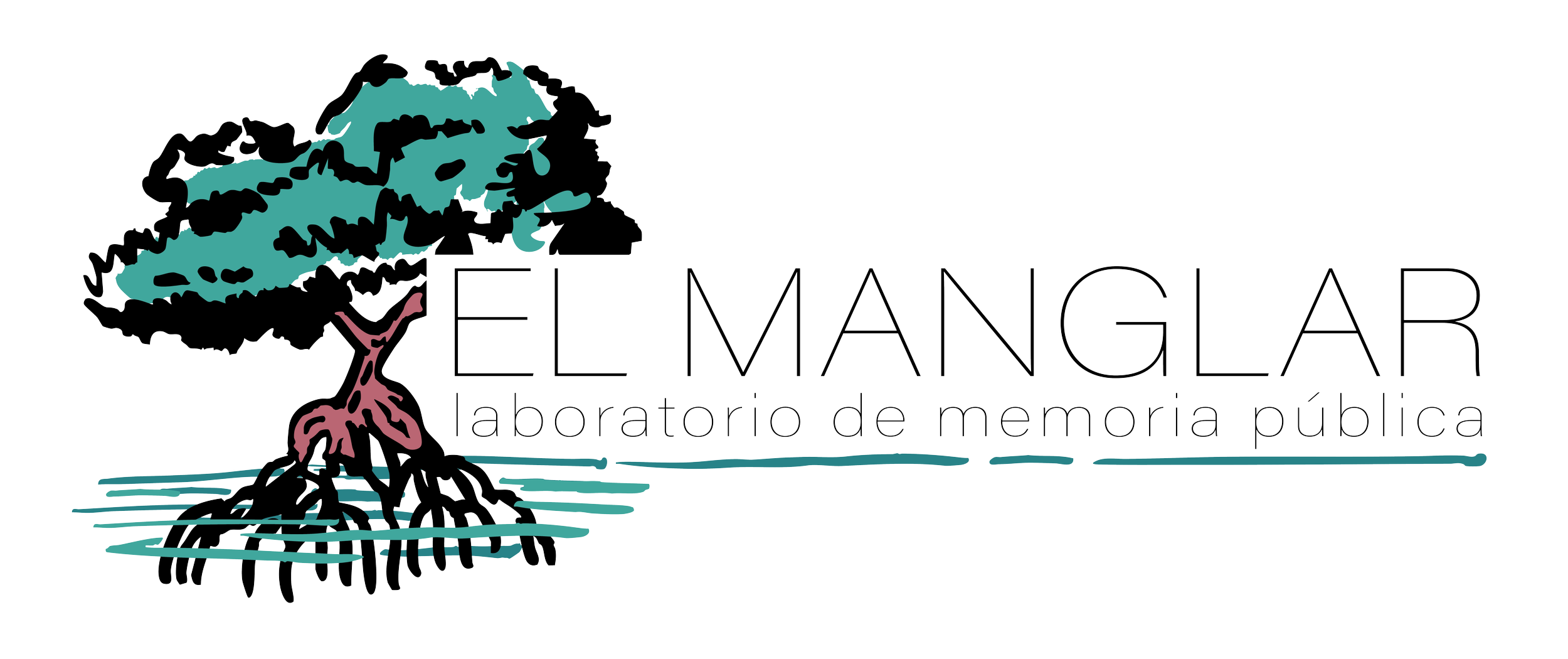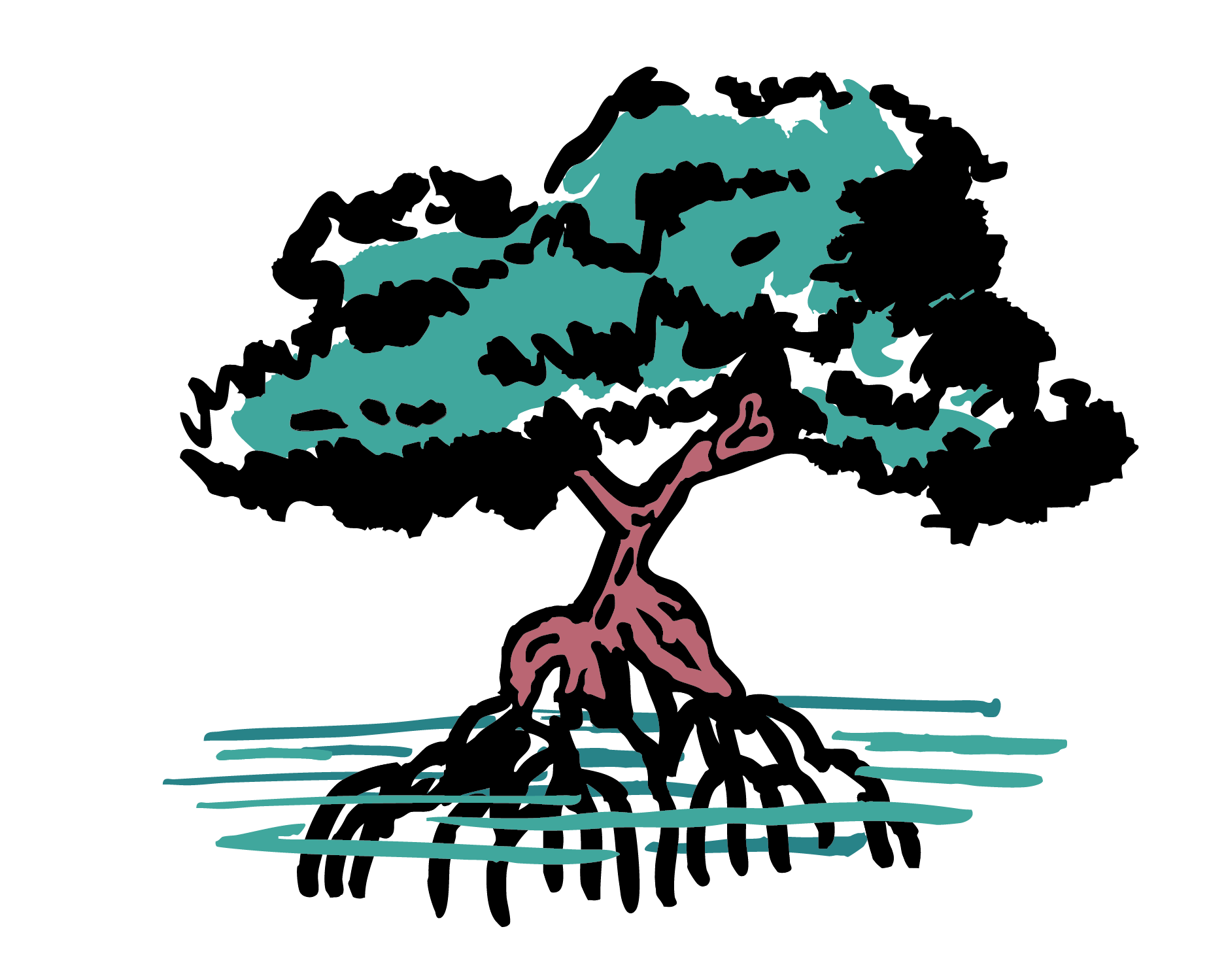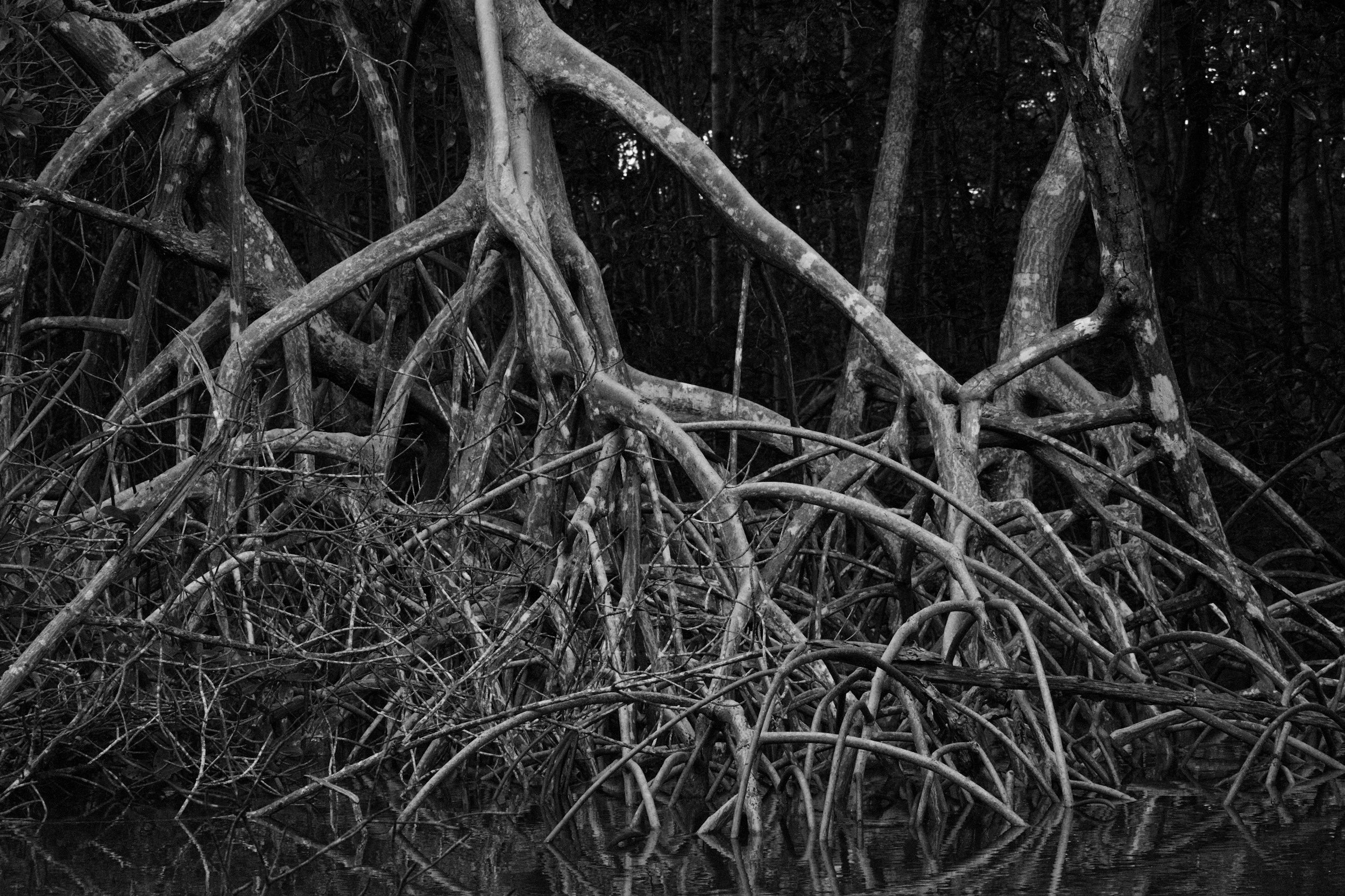El Manglar is a laboratory that supports public memory projects–initiatives located at the intersection where public history and humanities meet to encounter, interrupt, and (re)imagine the infrastructures of memory in Puerto Rico through artistic and/or academic research practices that culminate in a public facing output.
El Manglar supports projects that interrogate sites and/or narratives in public spaces that perpetuate coloniality in Puerto Rico and the Caribbean and grapple with the existential questions:
How can memory be experienced in Puerto Rico and theorized from the archipelagic Caribbean?
How does colonialism intersect and fragment our historical consciousness?
How can (re)membering foster (re)conciliation and healing with our ancestral past(s)?
What do participatory and decolonial memory practices look like?
How can public memory–and its infrastructures–be imagined otherwise for emancipatory futures?
How can the mangrove and the tides help us in this imagining otherwise in, for, with, and from the Caribbean?
Continuing our commitment to strengthening narrative sovereignty in the archipelago, we will be moving to an open call system for the following themes:
2026 – Monuments
2027 – Recintos
2028 – Ruinas
Stay tuned for more information!
Since 2023, we have been collaborating with Puerto Rican community organizations in La Perla, San Juan and Vieques in developing their own public memory initiatives that unsettle the othering gazes of academic scholarship, tourism, and settler colonialism.
Monuments

EL Manglar: PUBLIC MEMORY LAB
Theoretical framework
For Memoria (De)colonial, public memory is a site of contestation where historical actors compete for control of history and identity. For far too long, heritage practices have reproduced the dominant historical narratives of colonial elites. Their interpretations of history have been grafted onto the “nation” through public memory work which has included monuments, holidays, school curriculum, place names, festivals, museums, cultural institutions, and the canonization of an artistic, historical and literary tradition that reflects the coloniality of power. We believe that the struggle over public memory needs public facing and research-based community initiatives that remember, confront, repair, and transform world(s) by dismantling coloniality and (re)building memory.
Many Caribbean writers and theorists have pondered over how historical memory has been thought of in the Caribbean. Despite being a region born through trauma, erasure, and enslavement, the Caribbean is also a community engendered by joy, resistance, and freedom. The Caribbean challenges Eurocentric notions of historical consciousness, rootedness, and historical origins, and serves as a paradigm of innovation, creativity, and relationality. Through El Manglar, we look to contest the coloniality of historical memory by infrastructuring otherwise for the Caribbean and reimagining memory in, with, and from the archipelago(es). As we honor this tradition, we are inspired by the quintessential Caribbean metaphor of the mangrove and the tides.
The mangrove and the tides have been invoked by many Caribbeanists to confront the linear conceptions of time and place imposed by Empire. Édouard Glissant, for instance, has spoken about the rhizomatic (rather than single rooted) character of Caribbean identity and history, suggesting, along with others an abysmal unity where “the sea is history” (Walcott, 1979). Brathwaite (1974) argues that Caribbean history and memory, unlike Western epistemology, is tidalectic rather than dialectic (linear and reactive) as philosopher Hegel has theorized. That is, its movement is tidal, wave-like, cyclical, sisyphean, recurrent, and resistant to colonial fixity. Glissant (1997) proposes we see Caribbean history and memory as relational, sedimented, interwoven, and networked. While Glissant did not explicitly invoke the mangrove as a metaphor, this resilient ecosystem functions as a creolized version of Deleuze and Guattari’s rhizomatic thinking. According to Richard and Sally Price (1997), while the mangrove in itself was allegorized originally as something negative, murky, desolate, and swampy, it was later appropriated in a more positive manner by créolistes such as Raphael Confiant (1993), and further developed by writers like Maryse Condé (1989) and Michaeline Crichlow and Patricia Northover (2009; 2012). We aim to invoke both in a manner that reflects our Caribbean ways of knowing, being, (re)membering, resisting, and belonging. That is, “to call forth new worlds” outside of (or in between) History with a capital H and the binary of western/nonwestern (Crichlow and Northover 2012, 226). Perhaps, in this way, we can move towards the dismantling of coloniality and the (re)construction of memory capable of building our emancipatory and relational futures.
Mangroves thrive in both fresh and salt water, making their way inland through river basins, the veins that sustain archipelagic life. They are open to relation yet at the same time act as barriers that protect coastal ecosystems. The mangrove unsettles linear forms of history through the generative potential of entanglement and unclear origins. As roots intertwine, and mangrove trees mingle, the forest connects through underwater pathways that harken back to the Middle Passage, yet remain rooted in coastal waters, bridging islands and peoples together, reminding us of how “the unity is submarine” (Brathwaite, 1973). These rhizomes, much like the tides, never clear which one came first and which one came last, forge Caribbean history from dislocation and trauma so that we may cross into a relational future of “complex cultural growth and innovation that is expressed through critical practices of indigenization…re-positioning, resistance and re-homing” (Crichlow and Northover 2012, 225). Our feet sink into el babote, the soil near the roots that is always porous, murky, and opaque, never firm, yielding to those brave enough to cross without the clarity of knowing where each footstep will land. The weight of history, opacity, and unclear origins sinks us deeper into el babote as we struggle to find our footing. However, by holding on to the mangrove tree, we can perhaps embrace relational forms of heritage that are at the same time rooted in the Caribbean landscape (Glissant, 1997; CENTRO, Rooted + Relational).
References:
Brathwaite, Edward Kamau. (2021). “Caribbean Man in Space and Time.” Small Axe, vol. 25, no. 3, Nov. 2021, pp. 90–104. Duke University Press. Originally published in Savacou 11/12 (1975). DOI: 10.1215/07990537-9583432.
Brathwaite, Edward Kamau. (1981). The Arrivants a New World Trilogy: Rights of Passage; Islands; Masks. Oxford University Press.
Center for Puerto Rican Studies (CENTRO). “Rooted + Relational.” https://centropr.hunter.cuny.edu/projects/rooted-relational/.
Condé, Marysé. (1995). Crossing the Mangrove. Anchor Books.
Crichlow, Michaeline A., and Northover, Patricia. (2009). Globalization and the Post-Creole Imagination: Notes on Fleeing the Plantation. Duke University Press.
Crichlow, Michaeline A., and Northover, Patricia. (2012). “Rethinking the Mangrove: Reply to Critics of Globalization and the Post-Creole Imagination: Notes on Fleeing the Plantation.” Second symposium of critical practices in Caribbean cultural studies. Caribbean Studies, 36(2), 293.
Deleuze, Gilles., and Guattari, Félix. (1980). A Thousand Pleteaus: Capital and Schizophrenia. University of Minnesota Press.
Glissant, Édouard. (1997). Poetics of Relation. Translated by Betsy Wing, University of Michigan Press.
Glissant, Édouard. (1991). Caribbean Discourse: Selected Essays. University of Virginia Press.
Nwadike, Chinedu. (2020). “Tidalectics: Excavating History in Kamau Brathwaite's Arrivants.” IAFOR Journal of Arts & Humanities 7(1), pp. 55-67.
Price, Richard., and Price, Sally. (1997). “Shadowboxing the Mangrove.” Cultural Anthropology, 12(1), pp. 3-36. https://www.jstor.org/stable/656612.
Walcott, Dereck. (1979). “The Sea is History.” The Star-Apple Kingdom. Farrar, Straus, and Giroux.





